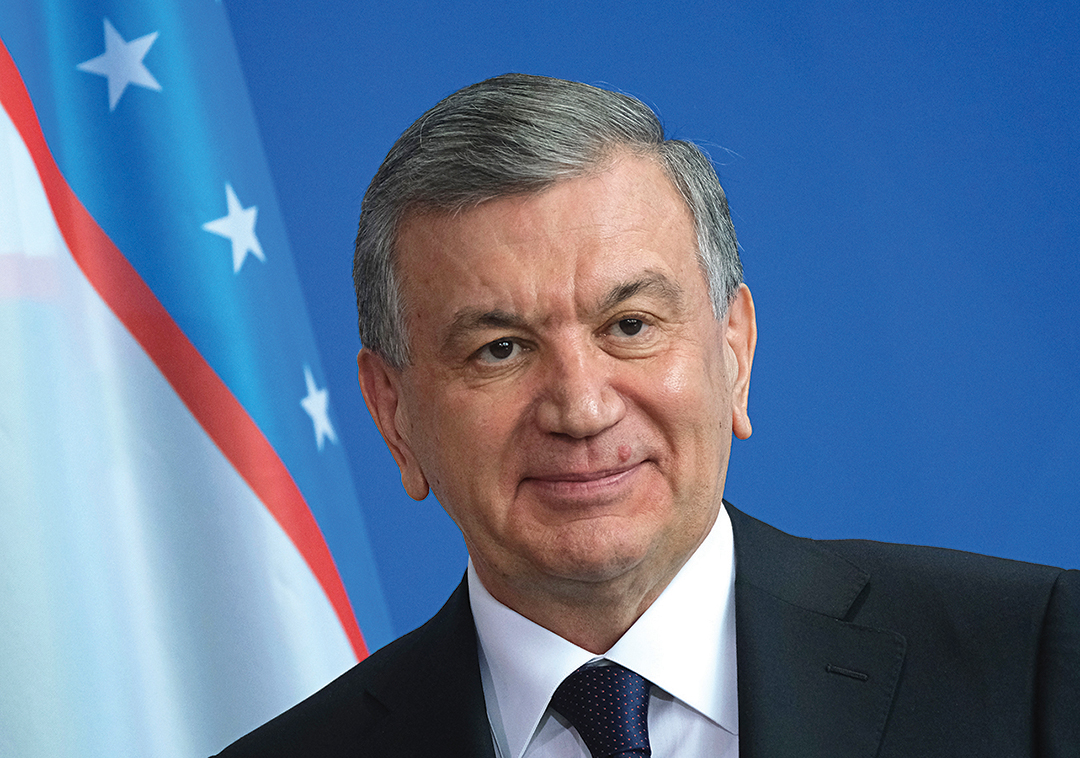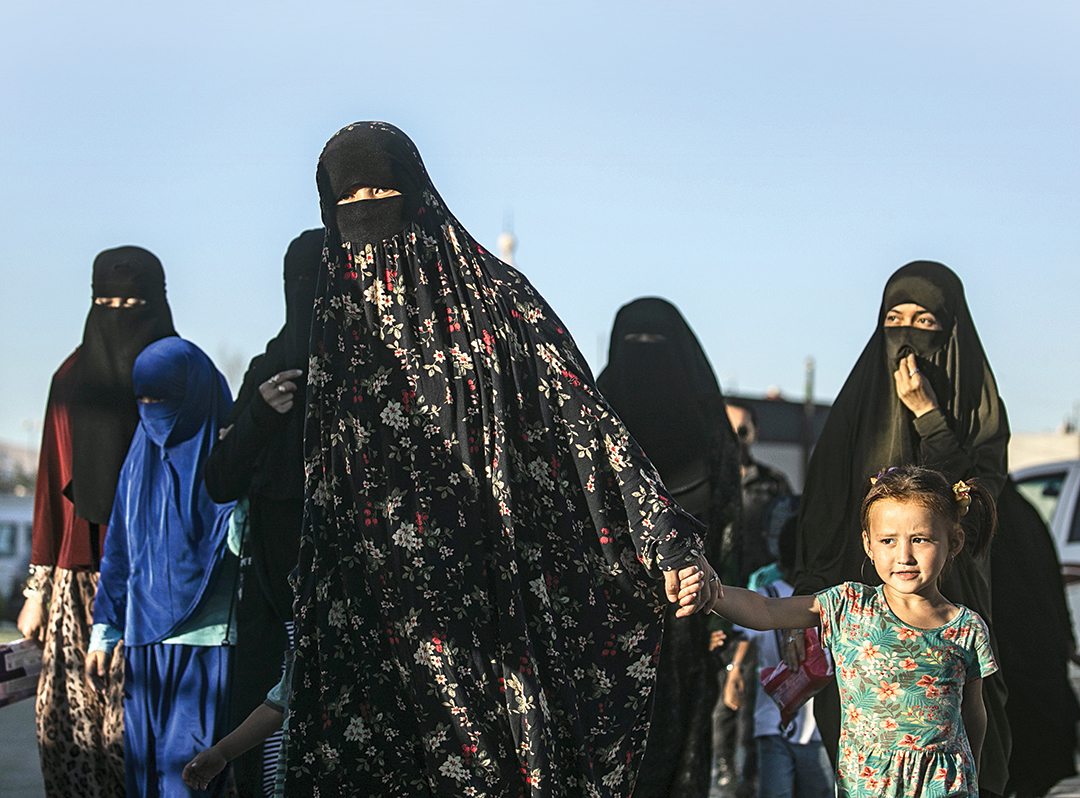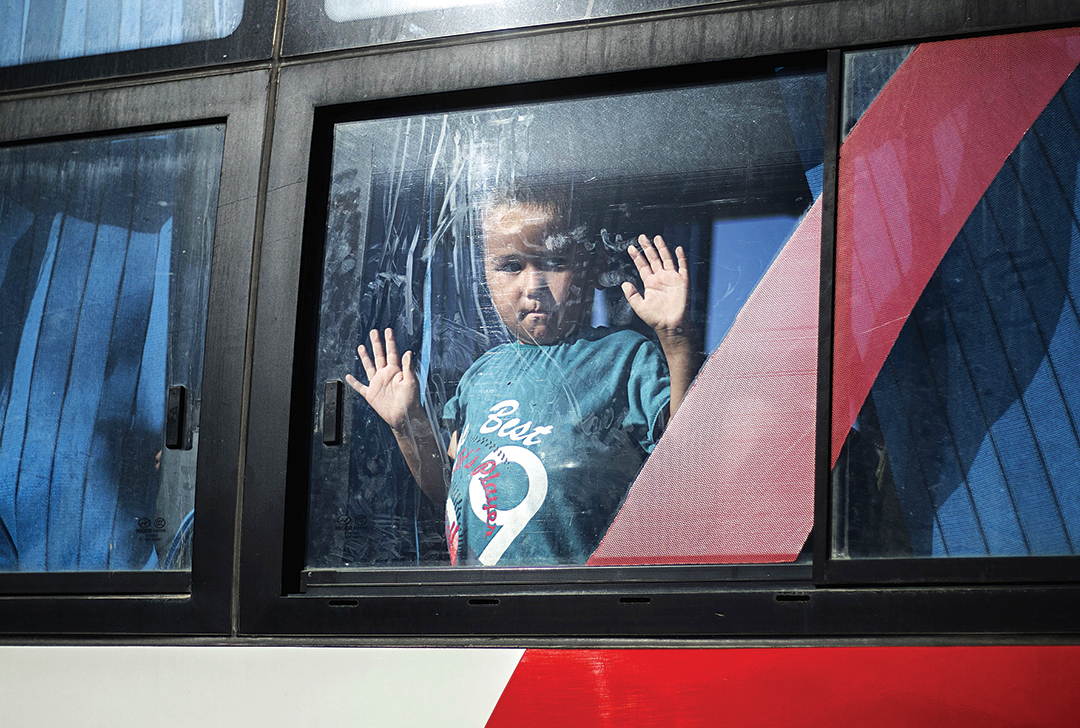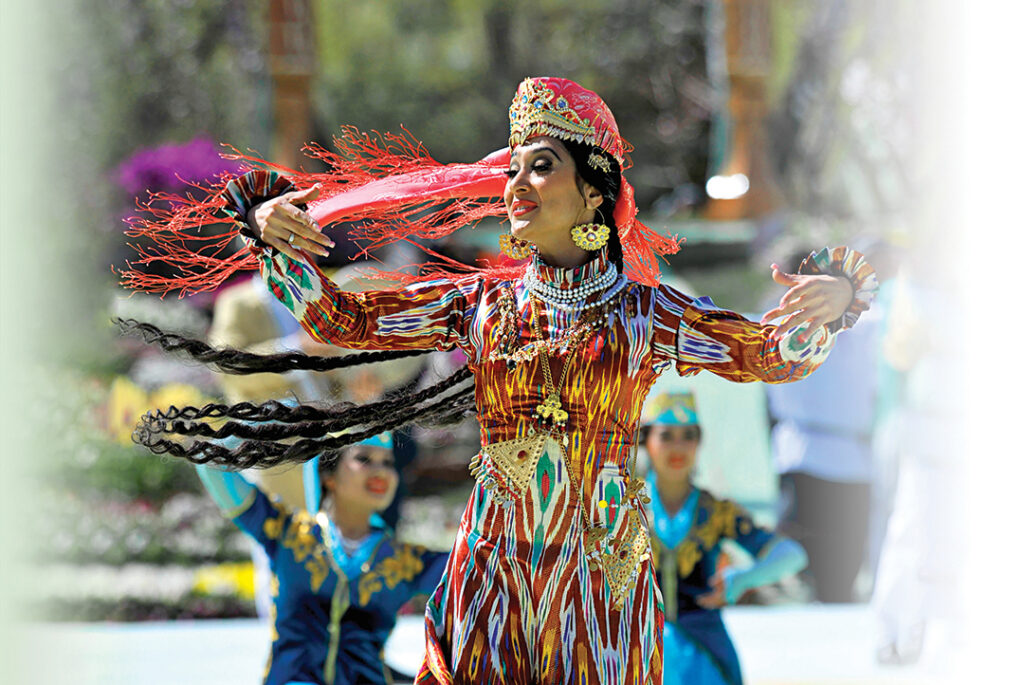SALTANAT BERDIKEEVA
In December 2020, Uzbekistan repatriated 98 of its citizens from Syria, including 73 children. This was the third round of repatriations of Uzbek citizens from foreign war zones in recent years. Local authorities provided medical and psychological assistance to integrate what they considered to be severely traumatized citizens back into the society. The Uzbek government also planned to provide them with housing, jobs, social benefits and schooling for the children.
The Uzbek government’s generosity in providing comprehensive assistance to returnees is a deradicalization tool meant to impede the growth of extremism in the country. Since 2017, Uzbekistan has prioritized social rehabilitation and reintegration of Uzbek nationals who fell victims to extremist ideas.

This major policy shift earned the attention of the United Nations, which named Uzbekistan one of the few countries in the world that has retrieved citizens, mostly women and children, from foreign conflict zones. These steps are particularly commendable for a country that once prided itself on its hard-line stance toward people deemed extremists or terrorists.
Uzbekistan’s policies on extremism and deradicalization have shifted dramatically under President Shavkat Mirziyoyev, who took office in 2016. President Mirziyoyev has eased some restrictions on the freedom of speech, assembly and religion and embarked on a series of reforms.
New anti-extremism law
In 2018, President Mirziyoyev signed the On Countering Extremism law that was unique for Uzbekistan because it had never passed legislation that specifically addressed the subject. Before then, only certain articles of the nation’s criminal code tackled extremism. The public welcomed the new law, which clarified how the Uzbek government would deal with extremism.
The new law provides an official definition of extremism as well as mechanisms for countering it. It also determines which government agencies are responsible for dealing with extremism and forms of international cooperation to fight this phenomenon.

The law establishes a set of measures to prevent terrorism. They include raising legal awareness among the public about extremism and its implications and expressing zero tolerance toward it. It bans the importation, production, storage and distribution of extremist materials as well as those who finance it.
It also provides legal mechanisms to designate organizations as extremist. The responsibility for doing so falls to the prosecutor general of Uzbekistan. The Supreme Court of Uzbekistan has a final say on which organizations will be classified as extremist and wields the authority to ban their activities.
Although the new law was lauded in Uzbekistan, it drew criticism from the Organization for Security and Co-operation in Europe (OSCE), which expressed concerns that some parts of the law defined extremism too broadly. The OSCE suggested the law focus only on “violent extremism” and remove vague language that could misrepresent certain behaviors as extremist and possibly lead to a judicial overreach.
Justice system reforms
While prohibiting extremism of any form in the country, the Uzbek government has also put emphasis on more compassionate approaches to rehabilitating religious extremists. Uzbekistan’s new methods are viewed as more nuanced and flexible and less punitive.
President Mirziyoyev’s policies promote milder treatment of people who were either involved or suspected of being involved with religious extremist groups and ideologies. Aiming to reduce chances of greater radicalization in prisons, Uzbek authorities have been trying to reduce the number of Uzbek citizens who are in prison on charges of terrorism and extremism.
Since 2018, presidential pardons of individuals convicted and imprisoned for carrying out terrorist and extremist acts have become part of the deradicalization process. Hundreds have been exonerated in recent years.

Likewise, over the past five years, the government removed 16,000 people from a list of suspected religious extremists. In 2019, Ombudsman of Uzbekistan Saidbek Azimov declared that the country no longer maintained a blacklist of extremists and that all citizens had a right to freely express opinions. The authorities also closed the Zhaslyk penal colony, which had housed many men convicted of religious extremism. President Mirziyoyev also reached out to some religious exiles living abroad and granted them permission to return home.
Courts in Uzbekistan began issuing more lenient verdicts when sentencing individuals who had fallen under the influence of Islamist extremist ideas. Before 2016, judges typically imposed five- to 15-year prison sentences on people linked to extremist organizations. Today, judges hand out far more suspended sentences or limit imprisonment to five years. Sometimes defendants are released under the supervision of public organizations committed to deradicalization.
Focus on youth
Like other governments in Central Asia, the Uzbek authorities increasingly recognize the importance of focusing on the social and economic well-being of young people, who have been a prime target of Islamist extremist organizations. Given that more than 60% of Uzbekistan’s population is young, the government considers them a “strategic resource of the state” and pays close attention to youth development programs, said Vladimir Norov, director of the Institute for Strategic and Interregional Studies under the President of Uzbekistan.
For example, a Commission on Youth Affairs has been established under the Legislative Chamber of the Uzbek parliament. Within the executive branch, administrators focus on social issues and the religious education of youths.
Within the law enforcement community, a deputy head of the department of internal affairs is responsible for youth issues. The Youth Union of Uzbekistan has over 10 million members and supports children whose parents were ensnared in religious extremist groups.
Improving religious instruction
Historically, the Uzbek government has paid special attention to how Islam is taught in the country. Since 2016, Uzbekistan has loosened its approach to religious education, although it is still under strict government supervision and the educational system remains strictly secular.
In recent years, Uzbekistan has seen a relative boom in Islamic educational institutions, particularly with President Mirziyoyev’s endorsement of what he calls “enlightened Islam.” Instead of suppressing Islam, President Mirziyoyev has completely shifted the old approach of rejecting and suppressing religion by embracing religious education and improving its quality.
In addition to providing greater religious freedom to citizens, the goal of such education is to refute fringe extremist ideas by teaching young people about the peaceful essence of Islam and the rich heritage of Islamic scholars and theologians of the past. The hope is that the youth educated in the true meaning of Islam would be less likely to be swayed by extremist movements.
Since 2017, new Islamic educational institutions have sprung up in Uzbekistan. For example, Imam Termizi International Research Center was established in Tashkent in 2017 to “promote the true essence of Islam, the Koran, and its hadiths.” The same impulse was behind the 2018 creation by presidential decree of the International Islamic Academy of Uzbekistan at Tashkent Islamic University. At the initiative of President Mirziyoyev, the Center for Islamic Civilization is under construction in the capital. It aims to become a nationally and globally influential educational and cultural institution.
Apart from creating more opportunities for the public to study Islam, Uzbekistan runs secondary and higher educational institutions that specialize in training muftis, imams, theologians and other Islamic scholars. Producing well-trained religious personnel at home reduces the need to send them abroad to study.
Uzbekistan’s government sees this as an insurance policy against fundamentalists trying to weaken the country’s historical devotion to Sunni Islam’s Hanafi school, known for its sectarian tolerance and appeal to reason.
Several pilot projects also engage citizens eager for religious enlightenment. In the Almazar district of Tashkent, local police opened an advisory center that employs experienced theologians, scholars and imams. Any resident of Tashkent can contact the center anonymously for religious guidance, including interpretations of the Quran.
Conclusion
Since 2016, Uzbekistan has embarked on major educational, economic, social, and democratic reforms and greater liberalization of the country under President Mirziyoyev. Most of these changes are new for this Central Asian country. The reforms include a law on fighting extremism, implementing more compassionate policies to deradicalize people, repatriating Uzbek citizens from foreign war zones, easing restrictions on religious practices, and promoting Islam as a humane and peaceful religion.
A central goal of these policies is to prevent extremism and terrorism and promote religious tolerance. Harsh treatments of suspected terrorists and extremists in the past, such as long prison sentences and banning Islamic customs, often led to social discontent and alienation.
The current liberalization of religious education and a more empathetic approach to deradicalization are likely to be more beneficial to Uzbekistan’s national security in the long term. Although some critics claim the reforms are insufficient, progress cannot be achieved all at once.
Uzbekistan has noticeably improved its attitudes and policies on extremism, religious freedom, and religious education in less than five years. It plans to build on these successes.
About the author: Saltanat Berdikeeva is a Kyrgyzstan-born author, analyst and blogger on the topics of economics, energy policy and security in Central Asia, the Middle East and the United States.

